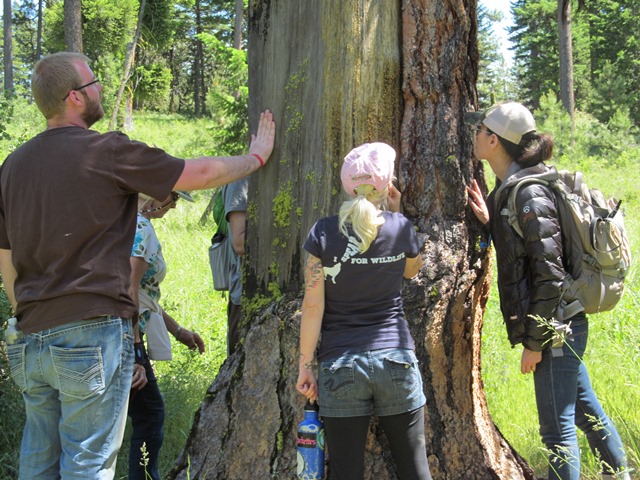
Reflecting on a Summer with Oregon Wild
by Phil Brown, Wildlife Conservation Legal Intern
Hi there!
My name is Phil Brown and I spent this summer as Oregon Wild’s Legal Intern. Like all good things, my time with Oregon Wild had to end, but I’m fortunate to have been able to take away invaluable experiences and memories from my short time in Oregon.
I am currently a student at New York University School of Law, and originally come from Emmetsburg, Iowa, a small farming town in the rural Midwest. I studied biology and political science as an undergraduate, with the intention of practicing environmental law.

After a year in law school and a summer working with an environmental non-profit, I am more convinced than ever that I am on the right path. Conservation of the natural world has always been an interest of mine, having been introduced to the idea through hunting and groups like Ducks Unlimited and Pheasants Forever.
To many of the activists and Oregon Wild supporters I met this summer, this might seem like quite the contradiction. How can someone enjoy hunting some wild animals yet want to protect other species from all kinds of human-caused mortality?
The short answer is that I believe we all – humans, wildlife, and plants alike – have a natural role in the world. Looking at how terribly we have devastated some wildlife like bison or whales and how terribly we’ve affected ecosystems through practices like clear-cutting and fire suppression, it can be easy to think that humans need to keep to ourselves and leave the natural world alone, totally free of our influence.

I think that would be a mistake, and my experiences this summer have only reinforced that perception.
I was lucky enough to see much of Oregon this summer. Coming from the Midwest and having lived for a year in New York City, it becomes easy to forget that there are places in our country full of environmental diversity. Oregon and the Pacific Northwest are a beautiful mix of coastal ecosystems, high desert plains, lush evergreen forests, massive river systems, and host of other, smaller biomes.
Each of these different environments offers it’s own version of natural wonder, faces its own problems, and requires a different approach in order to be adequately protected from adverse human interactions.
In many ways, the work of groups like Oregon Wild mirrors this diverse landscape.
More than just protecting different wild places and species, Oregon Wild does what it does in many ways. Lobbying state legislators in Salem, working with timber industry representatives in forest collaboratives, partnering with private businesses to protect water quality, organizing everyday activists to speak up for wildlife, leading hikes and rendezvous into the wild places of Oregon – these are just some of the ways I witnessed Oregon Wild fulfill its mission of protecting wild things, wherever and whatever they may be.

All of these different avenues for protecting the wild parts of Oregon have one thing in common, though. They require people to step up and step in on behalf of the places and beings that can’t speak for themselves. Having a wide array of these people speaking together makes for an even more powerful voice. From hunters to hikers and from birders to brewers, everyone in Oregon has a part to play when it comes to protecting the natural world.
I’m sure I’ll return to Oregon one day, perhaps even permanently. I sincerely hope that when I do, Oregon’s wildlife and wild places will be even better off than when I left. With the hard work of Oregon Wild and its supporters, I’m sure they will be.
 '
'
